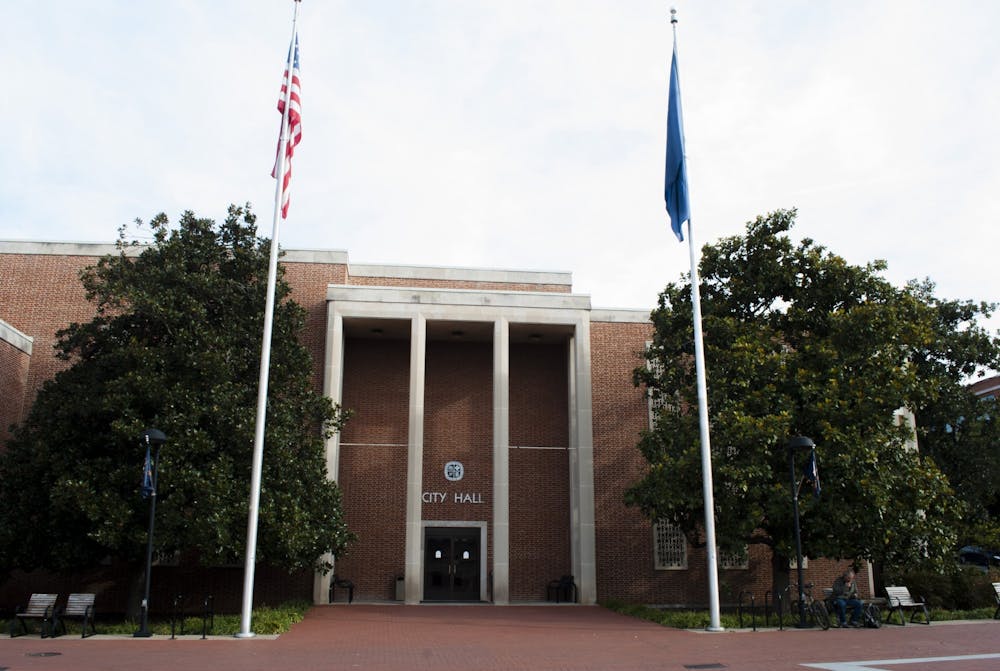Last November, the organizers of the “Unite the Right” rally were found guilty on four out of six counts. Earlier that month, Glenn Youngkin was elected as the next Governor of Virginia. These two events may not seem linked — one being a federal trial of violent white supremacists and the other an election in a contentious swing state. However, each of these events are points of conflict in the broader war of ideology and hegemony that occurs everyday in the U.S.
Aug. 11 and 12 are hard dates to forget for the Charlottesville community. The violence afflicted on residents has had lasting impacts and the restitution gained by the verdict will be powerful in both supporting the victims and financially ruining the organizations and individuals responsible for said harm. The testimony of former students was front and center — alumni Natalie Romero and Devin Willis told the harrowing stories of the physical violence they faced by the white supremacists who marched on Grounds and throughout Charlottesville. While the physical attacks may have ended in 2017, mental attacks continued in the trial. Some defendants used the trial to backtrack their fascist views, and Christopher Cantwell used much of his time to spout conspiracies and slurs. Another argument by the defense was that the trial was really an attack on free speech — as if the physical brutality of the white supremacists could exist without the vitriolic rhetoric to incite it. The verdict of this trial is an incredibly important part of the healing process for Charlottesville — I have high hopes that it will be a signal to these groups that there are serious consequences.
Youngkin’s election might have come as a surprise to some, but the University’s own Center for Politics had an astute analysis in the run up to election day. Simply based on the trends of Biden’s middling approval ratings and Virginia’s swing state nature, odds favored Youngkin. The key to the election was whether McAuliffe or Youngkin could add the extra votes needed on top of their own respective bases to get the majority. In the end, Youngkin pulled this off through higher numbers of suburb voters than the Republicans received in 2020.
Leading up to the election, Youngkin’s website lacked any substantial information on his policy positions. Instead, he used a strategy of manipulating voters into believing that critical race theory was being taught in K-12 schools in Virginia. Despite the fact that critical race theory is something that has never been taught in any K-12 school ever and is in reality an area of theory that is only taught in law school, Virginia voters fell for the conspiracy that it was actually being taught to children. Critical race theory was redefined as simply teaching that racism has a systemic hold on governance today. The way this shifts the perspective to simply ignore any and all racism prevalent in society today is frankly absurd. After Youngkin won, news stations that helped spread this lie were quick to drop it — some even contradicted their previous claims and admitted it was all a façade.
There is a deep irony in how this effect was actually achieved. To understand the ideological warfare occuring, we must in fact look to the same critical theorists who have been under attack. Antonio Gramsci first recorded his theory of cultural hegemony while imprisoned by the regime of Benito Mussolini. Gramsci’s cultural criticism was foundational for the development of critical theory as a school of Marxist thought. Cultural hegemony can best be understood as a theory that looks at class distinction through a lens of those who rule versus those being ruled — as classes organize, the dominant class utilizes hegemony to convince the classes underneath it to accept their world view and logic. This is done through education, news and all societal outlets that don’t rely on explicit force or coercion. The crux of hegemony is the non-forceful way in which it shifts how people of a certain class perceive the world.
Here is where the seemingly isolated events of the Virginia gubernatorial election and the “Unite the Right'' organizers' trial finally come together. The white supremacists who came to Grounds failed to recognize the first step of political control — they attempted an outright war before they had won the ideological war. Their mistake was believing they could conceal their ideology through the thinly veiled white supremacist moniquer when their true beliefs were clearly apparent in the violent acts they committed.
Youngkin’s strategy recognized the need to shift the bounds of what people saw as acceptable in politics by holding his relationship with Trump at length and by boosting the critical race theory conspiracy to play to white suburban fears of so-called “reverse racism.” It should not be left unsaid that the conspiracy which won Youngkin his victory is directly tied to the anti-semitic cultural Marxism conspiracy that has been developing in the same circles as the Unite the Right organizers for a long time. The difference today is in the incorporation of these ideas by the GOP and the direct impact that has on electoral politics. Everyone must now ask themselves where their beliefs lie — in their own hands and the values they believe in or in the thoughts and opinions of those who only see you as a means to power.
Ryan Lanford is a Viewpoint Writer for The Cavalier Daily. They can be reached at opinion@cavalierdaily.com.
The opinions expressed in this column are not necessarily those of The Cavalier Daily. Columns represent the views of the authors alone.







